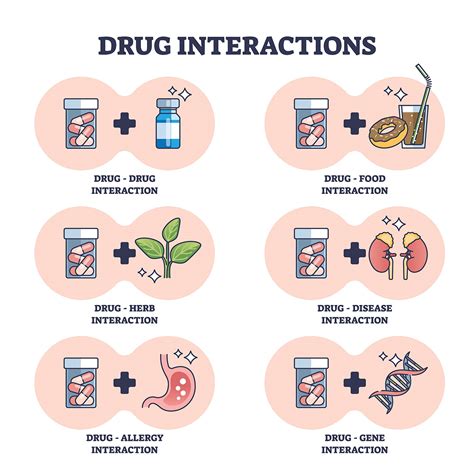Aripiprazole, commonly known by its brand name Abilify, is a medication that has been widely used in the treatment of various mental health conditions. The importance of understanding the uses, benefits, and potential side effects of aripiprazole cannot be overstated, especially for individuals who are considering this medication as part of their treatment plan. As we delve into the world of aripiprazole, it becomes clear that this medication plays a significant role in managing symptoms associated with several psychiatric disorders.
The role of aripiprazole in modern psychiatry is multifaceted, offering hope to individuals who struggle with conditions that can significantly impact their quality of life. By exploring the mechanisms through which aripiprazole works, its efficacy in treating different conditions, and the precautions that should be taken when using this medication, we can gain a deeper understanding of its potential benefits and limitations. Whether you are a healthcare professional seeking to expand your knowledge of treatment options or an individual looking for information on medications that may be prescribed to you, understanding aripiprazole is a crucial step in navigating the complex landscape of mental health treatment.
The journey to understanding aripiprazole begins with recognizing the conditions it is used to treat. Aripiprazole is primarily used for the treatment of schizophrenia, bipolar disorder, and major depressive disorder. It is known for its ability to stabilize mood and reduce the severity of psychotic symptoms, such as hallucinations and delusions. This makes it an invaluable tool in the management of these conditions, offering individuals the possibility of improved symptom control and a better quality of life. As we explore the specifics of how aripiprazole is used and its effects on these conditions, it becomes evident that this medication is a significant component of modern psychiatric care.
Aripiprazole Mechanism of Action
Aripiprazole works by affecting the levels of certain chemicals in the brain, known as neurotransmitters, which are involved in mood regulation and other psychiatric functions. It is a partial agonist at the dopamine D2 and serotonin 5-HT1A receptors, and an antagonist at serotonin 5-HT2A receptors. This unique mechanism of action sets it apart from other antipsychotic medications and contributes to its therapeutic effects. By modulating these neurotransmitter systems, aripiprazole can help reduce psychotic symptoms, stabilize mood, and improve cognitive function in individuals with schizophrenia and bipolar disorder.
Benefits of Aripiprazole
The benefits of aripiprazole are numerous and well-documented. For individuals with schizophrenia, it can significantly reduce the severity of psychotic symptoms, improving their ability to function in daily life. In the treatment of bipolar disorder, aripiprazole can help stabilize mood, reducing the risk of manic or depressive episodes. Additionally, its use in major depressive disorder can enhance the effects of antidepressants, offering relief to individuals who have not responded adequately to other treatments. The efficacy of aripiprazole, combined with its relatively favorable side effect profile compared to some other antipsychotic medications, makes it a valuable option for many patients.
Side Effects and Precautions
While aripiprazole is generally well-tolerated, it is not without potential side effects. Common side effects include weight gain, drowsiness, and nausea. In some cases, more serious side effects can occur, such as tardive dyskinesia, a condition characterized by involuntary movements. It is also important for individuals taking aripiprazole to be aware of the risk of metabolic changes, including increases in blood sugar and lipid levels. Given these potential side effects, it is crucial for patients to work closely with their healthcare provider to monitor their response to the medication and adjust their treatment plan as needed.
Dosage and Administration
The dosage of aripiprazole can vary depending on the condition being treated and the individual's response to the medication. It is available in several formulations, including tablets, orally disintegrating tablets, and a solution for oral administration. For schizophrenia and bipolar disorder, treatment typically begins with a lower dose, which may be gradually increased based on the patient's response and tolerance. It is essential for patients to follow the dosage instructions provided by their healthcare provider and not to adjust their dose without consultation.
Interactions with Other Medications
Aripiprazole can interact with other medications, which may affect its efficacy or increase the risk of side effects. For example, certain drugs that induce or inhibit the cytochrome P450 enzyme system can alter the levels of aripiprazole in the body. It is crucial for individuals taking aripiprazole to inform their healthcare provider about all other medications they are using, including prescription drugs, over-the-counter medications, and herbal supplements, to minimize the risk of adverse interactions.
Special Considerations
There are several special considerations that individuals taking aripiprazole should be aware of. Aripiprazole is not approved for use in pediatric patients for the treatment of major depressive disorder or for the treatment of patients with dementia-related psychosis. Additionally, elderly patients with dementia-related psychosis treated with antipsychotic drugs are at an increased risk of death. Pregnant or breastfeeding women should only use aripiprazole if the potential benefits outweigh the potential risks, as there is limited data on its safety in these populations.
Conclusion and Future Directions
In conclusion, aripiprazole is a valuable medication in the treatment of schizophrenia, bipolar disorder, and major depressive disorder. Its unique mechanism of action and relatively favorable side effect profile make it a preferred option for many patients. However, like all medications, it should be used under the guidance of a healthcare provider, with careful monitoring for potential side effects and interactions. As research continues to uncover the complexities of psychiatric disorders and the mechanisms through which medications like aripiprazole work, we can expect to see further advancements in the treatment of these conditions, offering new hope to individuals and families affected by mental illness.
What is aripiprazole used for?
+
Aripiprazole is used for the treatment of schizophrenia, bipolar disorder, and major depressive disorder. It helps reduce psychotic symptoms, stabilize mood, and improve cognitive function.
How does aripiprazole work?
+
Aripiprazole works by affecting the levels of certain chemicals in the brain, known as neurotransmitters, which are involved in mood regulation and other psychiatric functions. It is a partial agonist at the dopamine D2 and serotonin 5-HT1A receptors, and an antagonist at serotonin 5-HT2A receptors.
What are the potential side effects of aripiprazole?
+
Common side effects of aripiprazole include weight gain, drowsiness, and nausea. More serious side effects can occur, such as tardive dyskinesia and metabolic changes, including increases in blood sugar and lipid levels.
We invite you to share your thoughts and experiences with aripiprazole in the comments below. If you found this article informative, please consider sharing it with others who may benefit from this information. By engaging in open and honest discussions about mental health and the medications used to treat psychiatric disorders, we can work together to reduce stigma and improve outcomes for individuals affected by these conditions.







